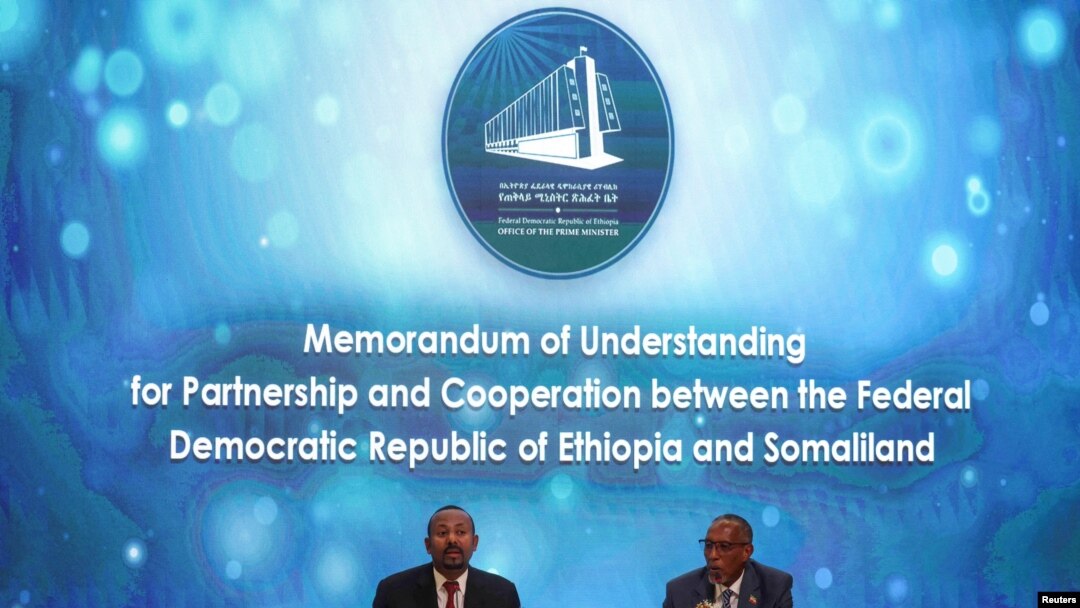Ahmed and Somaliland President Muse Bihi Abdi signed the Memorandum of Understanding, MOU, in the Ethiopian capital, Addis Ababa, a move described by Ahmed as a “starting point for our cooperation with the brotherly people of Somaliland.”
The deal on Somaliland's Berbera port comes months after Ahmed said his country — Africa's second most populous — would assert its right to access the Red Sea — sparking concerns among its neighbors.
President Bihi Abdi said as part of the agreement, Ethiopia would be the first country to recognize Somaliland as an independent nation in due course.
The agreement "shall pave the way to realize the aspiration of Ethiopia to secure access to the sea and diversify its access to seaport," Abiy’s office posted to the X platform, formerly Twitter.
"It also strengthens their security, economic and political partnership," it said.
Abiy's national security adviser Redwan Hussein said Ethiopia would have access to a leased military base on the Red Sea as part of the agreement.
"A step ahead in the right direction for this and generations to come," Hussein posted on X.
Somaliland would also receive a stake in state-owned Ethiopian Airlines, Hussien said, without providing further detail.
It was not clear when the pact would take effect, AFP reported.
Ethiopia was cut off from the coast after Eritrea seceded from the country and declared independence in 1993 following a three-decade war.
Addis Ababa had maintained access to a port in Eritrea until the two countries went to war in 1998-2000, and since then Ethiopia funnels most of its trade through Djibouti.
Somaliland has not gained widespread international recognition despite declaring autonomy from Somalia in 1991. Somalia says Somaliland is part of its territory.
Last week, Somalia's SONNA state media agency reported that following mediation efforts led by Djibouti, Somalia and Somaliland had agreed to resume talks aimed at resolving their disputes.
Some information in this report came from Reuters and Agence France Press.


